Keeping an otter as a pet has become a trend in some parts of the world. People are increasingly drawn to exotic animals—those not traditionally domesticated—as companions, and otters, with their playful nature and endearing appearance, are among the most desired. But is it really ethical or even legal to keep one at home?
In this article, we will answer some of the most common questions:
Are otters domestic animals?
Is it legal to own an otter?
What do they need to survive and thrive?
And what does the law say, especially in places like the EU or the United States?
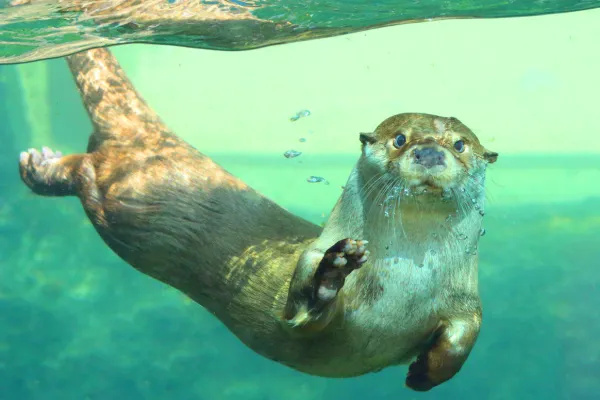
No. Otters are wild animals, not domestic pets. Even though some individuals may adjust to captivity under specific conditions, this is typically within professional environments like wildlife rescue centers, conservation breeding programs, or zoos—not in someone’s backyard or living room.
Otters are semi-aquatic mammals that live between land and water. They are typically found along rivers, streams, marshes, wetlands, and even some coastal regions.
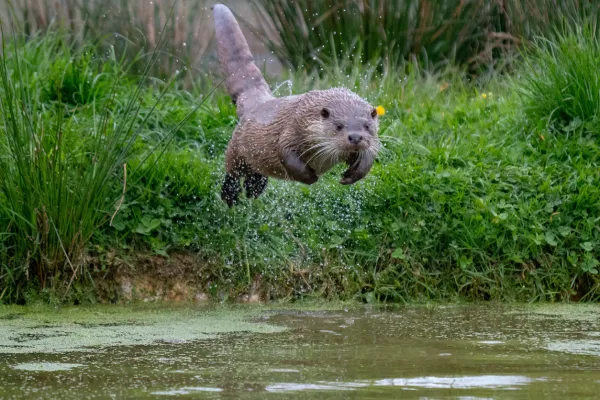
Otters are carnivorous. Their diet consists mainly of:
Fish
Crustaceans (like crabs)
Mollusks
They may also eat small birds, amphibians, lizards, insects, and even eggs.
✅ Related: [Carnivorous Animals – Examples and Diet] | [Invertebrates – What They Are and Examples]
Absolutely not. All species of otters around the world are currently protected under the CITES Convention (the Convention on International Trade in Endangered Species of Wild Fauna and Flora), listed in Appendices I and II, meaning their capture and international trade are either strictly prohibited or heavily restricted.
In countries like Spain, owning an otter is completely illegal unless it is for scientific purposes or species recovery programs—with official permits. Personal ownership, trade, and captivity are strictly forbidden.
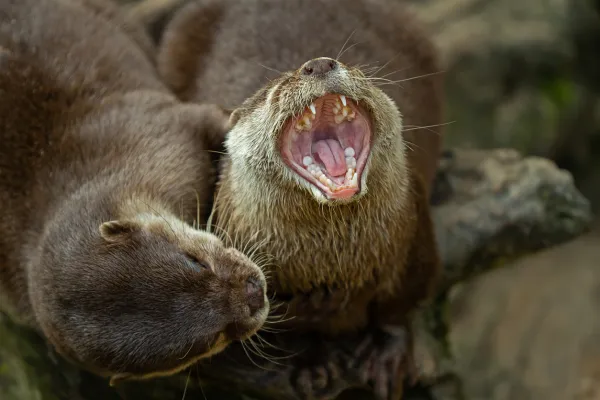
Otters are listed in Annex IV (strictly protected species). Article 12 of the directive prohibits:
Any deliberate capture or killing
Disturbance, especially during breeding, raising young, hibernation, or migration
Destruction of breeding or resting sites
Possession, transport, and trade of specimens taken from the wild
Violating species protection laws could result in:
Prison (6 months to 2 years)
Fines (8 to 24 months)
Disqualification from hunting/fishing or related occupations for up to 4 years
It classifies illegal wildlife trade as a form of contraband, punishable by:
1 to 5 years in prison
Heavy fines—up to six times the value of the goods involved
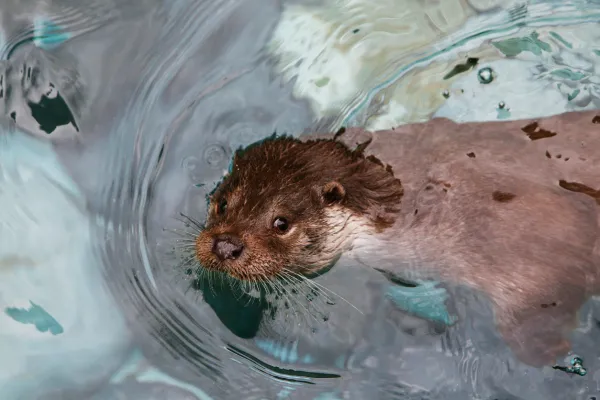
Spain is home to the Iberian or European Otter (Lutra lutra), which suffered intense population decline during the 1970s and 1980s—nearly 73% of deaths between 1970–1985 were due to deliberate killing.
Thanks to national recovery programs, this species is now slowly recovering. In Spain, it is listed as a “species of special interest” and is also protected under the EU Habitats Directive as a priority species requiring special conservation zones.
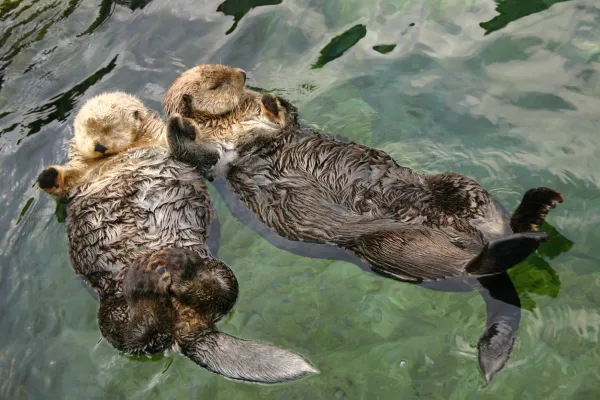
In response to growing concerns, the 114th Motion titled “Save the World’s Otters” was submitted at the 2020 IUCN World Conservation Congress in Marseille.
This motion highlighted:
The rapid global decline of otter populations
Rising illegal trade fueled by the pet market, especially in Asia
The urgent need for global legal protection and public awareness
The Asian small-clawed otter (Aonyx cinereus) is the most impacted species, facing exploitation for social media trends, exotic pet trades, and illegal commerce. The motion aims to implement international bans and stricter law enforcement.
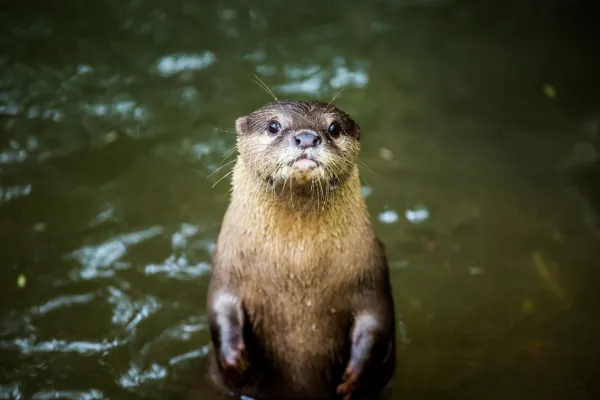
If you encounter an injured or stranded otter:
Do not try to touch it. Otters are wild carnivorous mammals and can bite or scratch.
Contact a licensed wildlife rescue center or environmental authority.
Try to observe from a distance until professionals arrive.
No—and here’s why:
✅ Otters are not pets. They are wild, carnivorous animals with specific environmental and dietary needs.
✅ Keeping otters as pets damages their conservation and promotes illegal trade.
✅ Most countries outlaw their ownership or trade.
✅ There are better ways to help: support conservation programs, volunteer with wildlife rescue groups, and help raise awareness about illegal wildlife trade.
Remember: Cute videos of otters on social media may be hiding a cruel reality.
Check out:
[Can You Keep a Raccoon as a Pet?]
[Why Are Endangered Animals Important to Protect?]
[Wildlife Rescue and Rehabilitation – How You Can Help]
Bibliography
Convention on International Trade in Endangered Species of Wild Fauna and Flora, signed in Washington on March 3, 1973, amended in Bonn on June 22, 1979 (Article XI, paragraph 3(a), and amended in Gaborone on April 30, 1983 (Article XXI).
Appendices I, II, and III in force as of October 4, 2017. Convention on International Trade in Endangered Species of Wild Fauna and Flora.
Javier Peira García. CONAMA 2016. November 28–December 1, Madrid. Recovery plan for an endangered species. Recovery plan for the Iberian otter in the Guadarrama Mountains.
Current status of the List of Wild Species under Special Protection and, where applicable, the Spanish Catalogue of Endangered Species. (Number of taxa included according to Royal Decree 139/2011, of February 4, and its amendments: Order AAA/75/2012, of January 12; Order AAA/1771/2015, of August 31; and Order AAA/1351/2016, of July 29).
BOE No. 235, of October 1, 1986. Instrument of ratification of the Convention on the Conservation of European Wildlife and Natural Habitats, done in Bern on September 19, 1979.
animal tags: otter
We created this article in conjunction with AI technology, then made sure it was fact-checked and edited by a Animals Top editor.